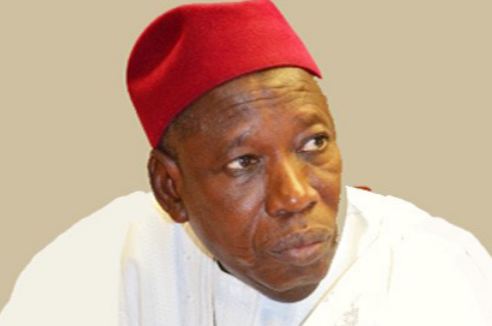The Supreme Court on Friday confirms the death penalty imposed on three members of Bakassi Boys vigilante group in 2006.
The High Court of Abia State had, on February 26, 2006, sentenced the three men to death for the murder of two persons which they were said to have apprehended for an alleged crime.
A five-man panel of the apex court led by Justice Dattijo Muhammad unanimously ruled that the three men truly committed murder and deserved the death sentence imposed on them.
Describing the Bakassi Boys as “a lawless group,” Justice Amina Augie, who delivered the judgment of the apex court, said, “the Bakassi Boys are nothing but outlaws.”
She said they were “lawless persons operating outside the law, who desecrate the laws of the land in their unlawful and misguided quest to dispense justice by killing alleged criminals.”
The three men — Emmanuel Eze, Adiele Ndubuisi and Stanley Azuogu — had separately approached the Court of Appeal challenging the judgment of the High Court.
But the Court of Appeal, in May 2010, dismissed their appeals and affirmed the death penalty imposed on them.
They further appealed to the Supreme Court praying the apex court to substitute the conviction on murder charge with a conviction on manslaughter, which would have attracted custodial sentence instead of the death penalty.
They had premised their appeal on the grounds that they were incited to kill the deceased by the Abia State Government.
But delivering the Supreme Court’s separate lead judgments on each of the three appellants’ appeals on Friday, Justice Augie said their line of defence, anchored on the grounds of provocation, was baseless.
She held that in the absence of anything said or done by the deceased in the presence of the Bakassi Boys making the assailants “to suddenly and temporarily lose their passion or self-control,” the defence anchored on provocation could not fly.
While ruling on one of the appeals, she said, “The appellant admitted that the Bakassi vigilante group, to which he belonged was an unlawful association that dealt with alleged criminals with extreme measures which flagrantly breached the provision of the law on fair hearing,”
She added, “Having desecrated the laws of the land with such relish and reckless abandon, and been convicted for murder, the appellant is urging this court to allow the appeal, set aside the judgment of the Court of Appeal delivered on May 5, 2010 and substitute his conviction on manslaughter, since he was incited by a third party.
“There are a few things that were wrong with that line of defence.
“First of all, it was more of implicating the Abia State Government in the offence they have committed rather than a valid defence in law.
“Secondly, the learned trial judge, C.L Ubaraje, as he then was, debunked his insinuation that the Abia State Government had a hand in the killing of the deceased persons.
“Finally and more importantly, the defence of provocation to avail the appellant, there must be something said or done by the deceased persons in his presence which caused the appellant to suddenly and temporarily lose his passion and self-control.
“In other words, the appellant said he was incited by the Abia State Government to kill the two deceased persons who did not do or say anything to him to him or other Bakassi boys before they were savagely killed cannot amount to provocation and his attempt to convince this court otherwise failed woefully.
“The respondent (the prosecution – Abia State Government) is right.
“The appellant embarked on a futile journey of proving provocation which does not arise in this case as the testimony of the prosecution witnesses confirmed that the appellant and his cohorts committed the said charge with utmost dispatch and babarity without any provocation or incitement.
“This appeal totally lacks merit and is dismissed.”

